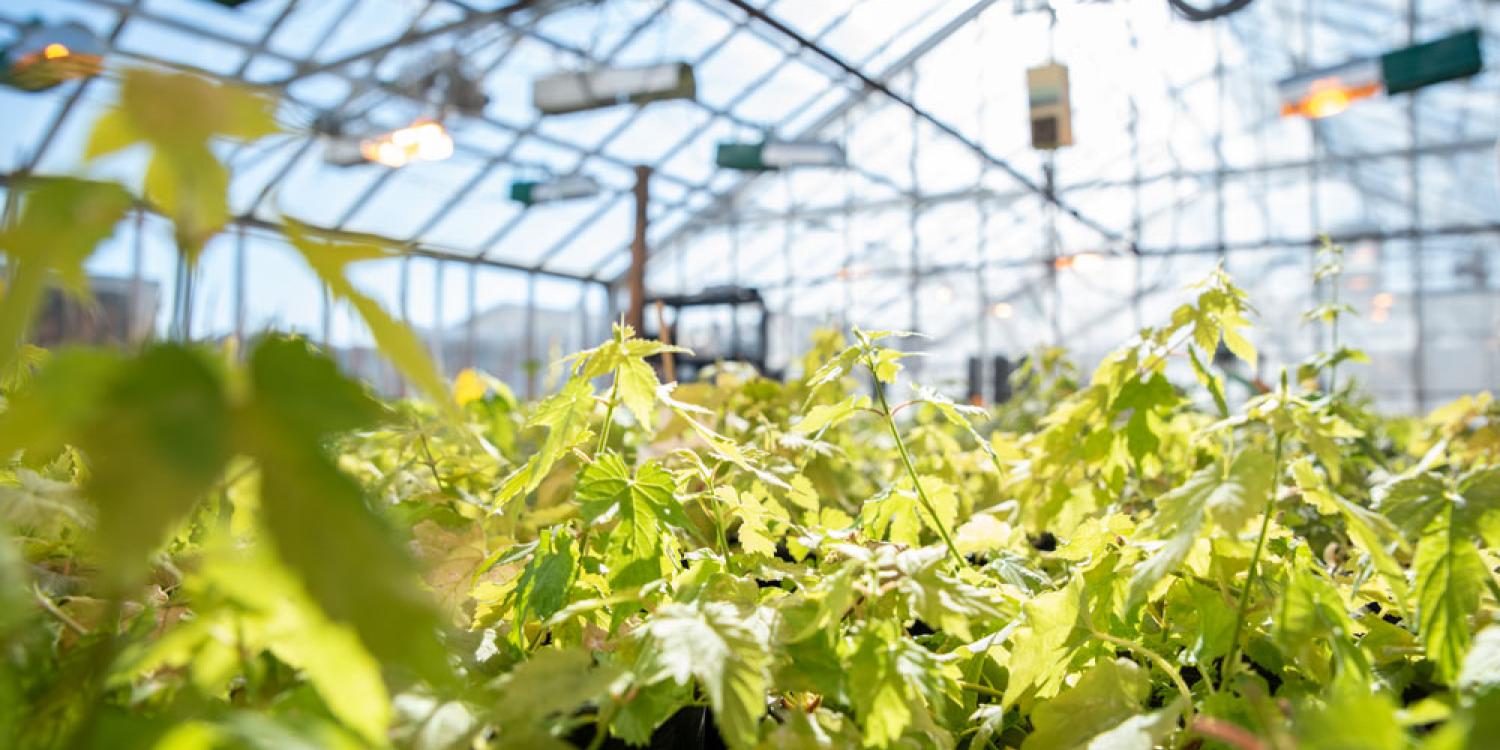
The Pacific Northwest is an optimal location for hop production due to its unique terroir and irrigation resources. In Oregon, the Willamette Valley's rich soil, mild climate and abundant rainfall provide ideal conditions for commercial hop production. As a result, Oregon ranks third in United States in hop acreage – behind Washington and Idaho – with nearly 25 family-run hop farms spread over 7,500 acres. According to the U.S. Department of Agriculture, Oregon produced 12% of the U.S. hop crop in 2020, with a value of production at nearly $75 million.
Oregon's microbrewers are in search of unique-smelling hops to create new tastes for consumers beyond the classic citrus, floral, and herbal notes, and Oregon State University is working to create new varieties for them.
At its hop yard in Corvallis, almost 1,500 hop plants spiral skyward. OSU's hops breeder, Shaun Townsend, sprinkles their young flowers with pollen, nurtures their offspring, then keeps the ones that resist diseases, boast high yields and have desirable aromas.
Out of 4,000 or more seedlings in the greenhouse each year, OSU ends up with maybe a dozen it would brew beer with, and less than five that would interest the market. The first hop variety bred by Townsend in his Aroma Hops Breeding Program at OSU is Strata, which was released to Oregon-based hop merchant Indie Hops and has found its way into packaged beers, including Strata IPA, produced by Worthy Brewing in Bend. Strata expresses many of the oils associated with mango, oranges, and other fruits and herbs.
Besides breeding hops, Oregon State works with the U.S. Department of Agriculture on research to address disease and insect problems, the genetic basis for certain traits, and the relationship between hop chemistry and beer quality.